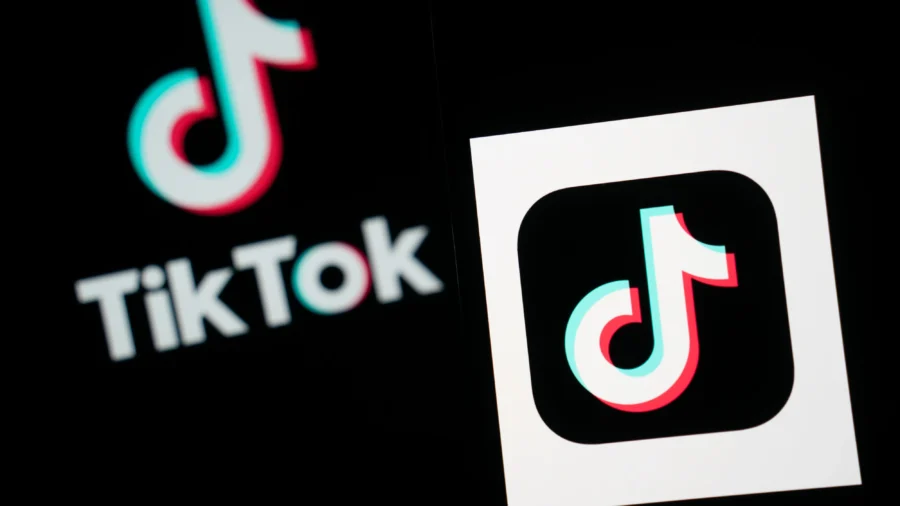The House Select Committee on China, the most hawkish China committee in the U.S. House of Representatives, said it is against any Chinese ownership of TikTok. The social media app’s owner, ByteDance, has until Saturday to sell.
Committee members suggested during a press conference on March 27 that they would block the deal if ByteDance kept a stake.
“Any deal that allows ByteDance to maintain control of TikTok is a grave threat to our security and a violation of U.S. law,” Committee Chairman John Moolenaar (R-Mich.) said at the press conference.
Moolenar was referencing the Protecting Americans from Foreign Adversary Controlled Applications Act, signed into law by former President Joe Biden. The law prohibits the distribution of applications deemed to be controlled by foreign adversaries, such as TikTok’s Chinese ownership, unless divestiture occurs to remove foreign control.
Even though ByteDance is privately owned, Washington knows there is no such thing as a private company in China since all companies must comply with Chinese Communist Party (CCP) rules related to security, intelligence, counter-espionage, and cybersecurity. Additionally, the country’s Cyberspace Administration requires all big tech companies to submit their algorithms.
Not only does this mean that user data can be accessed by the CCP by law, it means the CCP can use TikTok to increase the popularity of posts that divide U.S. society or go against political leaders.
In Trump’s first term, he tried to shut down TikTok, but after successfully using the platform to reach young voters during his 2024 campaign, he’s struck a more moderate posture this time around.
When asked why he changed his position on Inauguration Day Trump said, “Because I got to use it.”
Trump hinted earlier last month that he could be flexible with TikTok if it is not sold by April 5, hinting he could extend the deadline yet again. The original deadline was Jan. 19. However, after taking office, Trump issued an executive order that postponed the ban until now.
TikTok CEO Shou Zi Chew notably attended Trump’s inauguration.
Then about one week before his new tariff regime was announced, Trump was asked by reporters if he’d consider reducing tariffs on China if the CCP approves the sale of TikTok.
Trump said the move “sounds like something I’d do.”
But now, TikTok’s D-Day is coming.
ByteDance is “running a massive PR campaign across the U.S. to sway public opinion and distract from the core issue: ongoing Chinese control of the app,” Moolenaar said.
Moolenaar made his comments last week during the so-called Ad Hoc TikTok Coalition’s conference. The Coalition is comprised of Committee members who heard from tech influencers and researchers advocating for guarantees that the CCP has no control over TikTok’s algorithm or data.
Joel Finkelstein, a researcher at Rutgers University’s Network Contagion Research Institute, told the coalition that when it comes to politics, the ratio between left and right political voices is fairly equal. But when it comes to geopolitical matters that involve China, that ratio changes dramatically.
“We wanted to see what was the difference between TikTok and Instagram, to measure whether or not content that is sensitive to the Chinese Communist Party might be presented differently on TikTok,” he said, adding that content sensitive to the CCP was throttled.
“Issues around Taiwan or Israel and Ukraine, we immediately began to see asymmetries across the board,” Finkelstein said. “Anything that had to do with Tibet or the Uyghur genocide was virtually non-existent.”
ByteDance founder and CEO Zhang Yiming, 42, stepped down from the company in May 2021. He is a board member and advisor. In 2020, the Singapore-based billionaire acknowledged that selling TikTok’s U.S. operations is the only way to avoid a ban. He was criticized for this stance on the Chinese social media platform Weibo and in 2024 said he would oppose Biden’s forced sale of the company he created. He has been quiet since.
Silicon Valley has been a big backer of Zhang through investment firms like General Atlantic, Susquehanna International Group, Tiger Global Management, and KKR.
General Atlantic and Susquehanna are trying to buy ByteDance’s stake in TikTok. Other potential buyers mentioned in the press include Los Angeles Dodgers owner Frank McCourt and YouTuber Mr. Beast, though they no longer appear to be in the running as lead investors at the moment.
“There’s significant financial influence from powerful political donors invested in the outcome of the TikTok deal,” said Silicon Valley investor and CEO of ShiftIQ.AI, Brian Costello. “But what’s equally crucial is preventing the CCP from shaping the thoughts of millions of Americans who use the platform daily. The core issue here is control—over the algorithm, the management team, and the board. My hope is that any finalized deal addresses these points decisively, ensuring a genuine separation from the Chinese Communist Party’s influence.”
The Ad Hoc Coalition and House Select Committee members have characterized TikTok as a national security threat.
“To the people who say we are taking away their dance videos … you can do those things so long as you are not compromising national security, and that is exactly what TikTok does,” said Rep. Kat Cammack (R-Fla.).
Although Trump has the authority to mandate divestitures, Congress has some power here, too.
In 2006, Dubai Ports World (DP World), a state-owned enterprise from the United Arab Emirates, sought to acquire operations at several major U.S. ports through the purchase of the British company P&O. The Committee on Foreign Investment in the United States, an executive branch agency, initially approved the transaction. However, significant bipartisan opposition arose in Congress due to national security concerns, and DP World ultimately decided to divest its U.S. port operations to a domestic entity.
Strategic advisor Rick Lane of the Ad Hok TikTok Coalition said ByteDance has no choice. “The law is the law,” he said, citing the same bill Moolenaar spoke of during his opening remarks at the conference.

